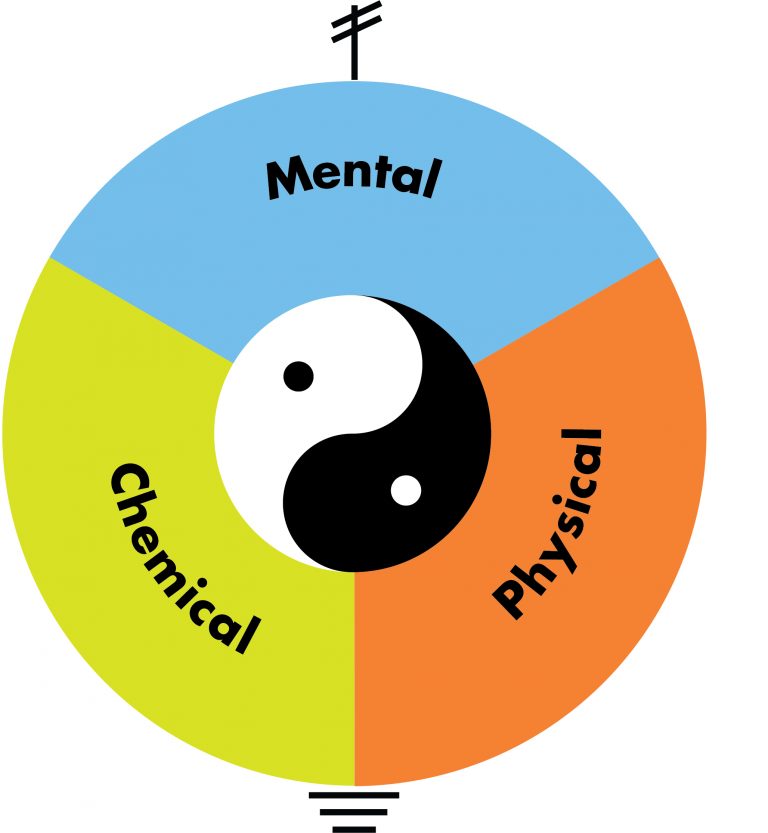
Over the last 36 years Adrenal Stress is one of the most common conditions my clients have suffered from and I am noticing that the age for this is getting younger with most teenagers feeling the detrimental effects of stress. Within Systematic Kinesiology (SK) we have tests to ascertain which level of adrenal stress a person is suffering from.
Stage 1 – Stressed – Knows it and feels tired with hypoadrenia
Stage 2 – Highly Stressed – Loves the hyper feeling, they might say ‘I thrive on stress’ tired but wired with hyperadrenia. Disturbed sleep, waking in the early hours.
Stage 3 – Very Stressed – Feels exhausted/crashed and having problems sleeping. Even if they do sleep they still feel wiped out.
The Stress Hormone
Within the adrenals, Cortisol often known as the ‘stress hormone’, plays a vital role in our body’s response to stress. Produced by the adrenal glands, cortisol helps regulate various physiological functions, including metabolism, immune response, and blood pressure. Which is all positive with manageable stress levels AND with enough recovery time.
However, chronic stress with little or NO recovery time can lead to elevated cortisol levels, contributing to health issues such as suppressed immune function, inflammation, increased appetite and cravings for high-calorie foods leading to belly fat and weight gain.
What is Cortisol?
Cortisol is a steroid hormone produced by the adrenal glands, which are triangular and sit on top of the kidneys. It is released in response to stress and plays a key role in the body’s fight-or-flight response. Cortisol prepares the body for immediate action in response to stressors by increasing glucose availability for energy. It enhances the brain’s use of glucose, promoting alertness and quick decision-making during stressful situations.
Cortisol has anti-inflammatory properties and helps regulate the immune system.
However as chronic elevation of cortisol can suppress the immune system it makes the body more susceptible to infections and inflammation. Also as cortisol goes up, so does our blood sugar. And when our blood sugar goes up, our pancreas is going to output insulin. Cortisol itself can cause weight gain and then the increased insulin adds to further weight gain.
Keeping Cortisol Balanced.
It’s not necessarily what happens to us that matters, it is our reaction or response as to how we deal with stresses that counts.
- A reaction is a knee jerk (often regretted) way of reacting from our subconscious learned behaviour. Reactions spill out of us automatically often making ourselves and others feel worse and more stressed.
- A response is with pause for thought and consideration to deal with a challenging situation in a calm/better way which is preferable for ourselves and others. This way, we can down regulate stress hormones within our body preventing further stress and imbalance.
Balancing Cortisol Holistically through the Mental, Chemical, Physical and Energetical (MCPE) Realms

Mental
Practice stress-reducing activities, such as deep breathing, mindfulness meditation, or Emotional Stress Release (put our hand over our foreheads and keep it there while we think of our worries/anxieties/stresses)
These techniques can help lower cortisol levels and promote a sense of calm.
Chemical
Maintain a clean diet. Keep wheat, processed sugars/foods, cows milk and table salt/salty snacks out. Ensure ‘good’ wholefood nutrients are going in, including omega-3 fatty acids, which have also been linked to lower cortisol levels. Avoid excessive caffeine intake, as it can contribute to cortisol spikes. Supplements that may help Cortisol balance include:
- Adaptogens – such as Liquorice root, Ashwagandha, Rhodiola and Siberian Ginseng that help the body adapt to stress and regulate cortisol levels.
- Phosphatidylserine – found in soy/lecithin, eggs and liver. Phosphatidylserine is a fatty substance called a phospholipid. It covers and protects the cells in your brain and carries messages between them. Phosphatidylserine plays an important role in keeping your mind and memory sharp and can lower cortisol levels, especially in response to exercise-induced stress.
Physical
Getting regular physical activity/exercise that you ENJOY helps regulate cortisol levels.
Aim for a mix of aerobic exercises (rebounding), strength training, and also activities that promote relaxation, such as Yoga/Pilates or meditation. Have a look at what exercises are good for your particular blood group. We also need to be mindful not to over exercise. Aerobic exercise is best done in 24 minute intervals with recovery time doing low impact movements.
Energetical
Our energies need rest, relaxation and adequate sleep. Quality sleep (as much as we can between 9.30pm and 2.30am is crucial for the brain to clear out, rejuvenate and regulate all hormones including cortisol. Establish a consistent sleep routine, winding down well before with maybe an early dinner, a bath, and stopping use of all devices at least 2 hours before bed to create a sleep-conducive environment that supports deep and restful sleep.
As we can see, there are many different lifestyle choices and supplements that can help in balancing cortisol levels which are empowering and essential for our overall health and well-being.
Since every ‘body’ is as different on the inside as we are on the outside, we can get confused as to what is best for us personally. If you would like help to reduce the stress levels within YOUR body, SK can be of huge benefit. A Systematic Kinesiologist can test and correct any imbalances within the hormonal system, finding the bespoke supplement regime to help your body regain balance in its own unique way.
Let’s get our cortisol working for us not against us, turning our foe into our friend.
To find your nearest practitioner please go to taskuknetwork.org.
Always consult with a healthcare professional before making significant changes to your lifestyle or starting any new supplement regimen.